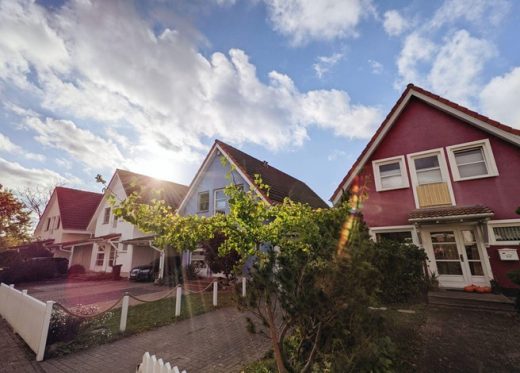Pros and cons of 15-Year vs. 30-Year Mortgage guide, Home finance tips, Online property expense advice
What Are the Pros and Cons of a 15-Year Mortgage vs. a 30-Year Mortgage?
27 April 2022
When deciding whether to take out a 15-year or 30-year mortgage, it is important to compare the costs of each loan type. A 15-year mortgage will have a higher monthly payment, but the total interest paid over the life of the loan will be significantly less than with a 30-year mortgage.
If you are able to afford the higher monthly payment, a 15-year mortgage is a good choice for those looking to pay off their mortgage sooner. However, for those who need a lower monthly payment, a 30-year mortgage is a better option. Learn more about the pros and cons of each loan type.
Pros and Cons of a 15-Year Mortgage
There are many pros to choosing a 15-year over a 30-year mortgage. The people from AstonAndCoFS can explain how one of the biggest pros of a 15-year loan is that you will pay less interest overall. This is because the loan is paid off in half the time of a 30-year loan.
This can be a great option for those looking to save money on their mortgage. Another pro is that you will build equity in your home much more quickly. This is because you will be paying less interest and more of your monthly payments will be going toward the principal of your loan. In order to best determine which loan type is the best, you’ll want to check out current mortgage rates.
When it comes to mortgage lenders, the rate refers to the amount you pay each year to borrow the money. The APR takes the interest rate and adds fees that the borrower has to pay upfront and at closing. For example, today’s rates for 30-year home loans rose to 5.36%, while the 15-year APR sits at 4.54%. This is what makes 15-year loans advantageous. But the monthly payment for a shorter term will be a lot higher.
Pros and Cons of a 30-Year Mortgage
A 30-year loan has a minimum term of 30 years. This type of mortgage allows the borrower to make smaller monthly payments, and it often has a lower interest rate than a 15- or 20-year mortgage. The monthly payments are lower than those of a shorter-term mortgage. This can make it easier for the borrower to afford a mortgage, and it may also allow them to purchase a more expensive home.
The 30-year term also allows the borrower to spread the cost of their mortgage over a longer period of time, which can make it easier to budget for monthly expenses. This type of mortgage also allows the borrower to build up their savings and frees up funding for other financial goals. This can include investing or retirement.
Comparing the Costs of a 15-Year and 30-Year Mortgage
Both mortgages have their pros and cons, so it can be tough to decide which one is right for you. A 15-year term typically comes with a lower interest rate than a 30-year term. This means you’ll pay lower interest over the life of the loan and also pay off your mortgage sooner.
This can be a great option if you want to be mortgage-free sooner rather than later. You’ll also build equity faster because you own your home sooner. The major disadvantage is that your monthly payments will be higher. For 30-year terms, you have lower monthly payments and you can potentially afford a larger mortgage or buy a bigger home in a more expensive neighborhood.
There’s also a little bit more flexibility. The disadvantages include paying more in total interest and having less equity in your home. Interest rates are also higher because the lender will be taking on more risk by lending for a longer period of time.
These are just a few pros and cons to go over before deciding on the term of your mortgage loan.
Comments on this guide to Pros and cons of 15-Year vs. 30-Year Mortgage article are welcome.
Mortgages
Mortgage Posts
6 ways that may lower your mortgage interest rate

photo : Paul Kapischka on Unsplash
Are You in the Gray Area in Your Mortgage?
How is COVID affecting mortgages advice
Tips how to hire best mortgage broker in UK
Can reverse mortgage allow me to retire sooner?
Building Articles
Residential Property
Comments / photos for the Pros and cons of 15-Year vs. 30-Year Mortgage advice page welcome






